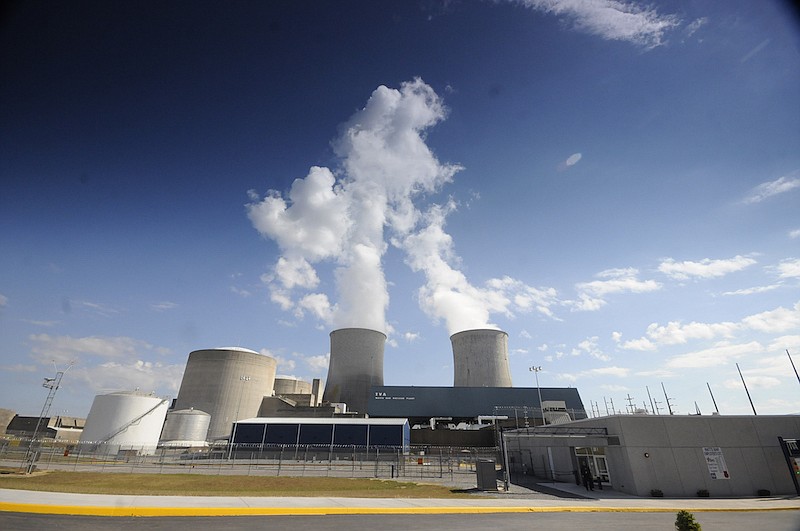Federal regulators have slapped the Tennessee Valley Authority with its biggest fine ever after determining that the federal utility violated whistleblower protections for nuclear workers by disciplining and then dismissing nuclear engineers who worked at the Sequoyah and Watts Bar nuclear power plants.
The Nuclear Regulatory Commission staff said Tuesday that two senior TVA nuclear managers managers violated at least four safety regulations by dismissing two engineers who raised safety concerns from 2015 to 2018 and created an atmosphere "in which employees are less likely to report safety issues for fear of reprisal."
TVA said its investigation of the incidents did not show such wrongdoing and noted that TVA's current nuclear chief Tim Rausch revamped the employee concerns program last year to try to be more proactive in dealing with employee concerns.
In a notice of violation delivered to TVA Tuesday, the head of NRC's office of enforcement, George Wilson, said engineers working on programs at the Sequoyah and Watts Bar nuclear plants were first subject to a harassment investigation, then placed on paid administrative leave and ultimately were discharged after raising concerns about safety problems and corporate nuclear licensing activities.
The NRC is proposing fines against TVA totaling $606,942 and is ordering TVA to prohibit its former vice president of regulatory affairs, Joe Shea, be banned from nuclear power work for five years and that a citation be issued against TVA's former director of corporate nuclear licensing, Erin Henderson.
The NRC said the managers "violated the NRC's employee protection rule and engaged in deliberate misconduct."
The regulatory finding is similar to a U.S. Department of Labor ruling earlier this year that ordered TVA to rehire one of its engineers, Beth Wetzel, who was fired after raising concerns and speaking negatively about her supervisor. TVA was ordered to give Wetzel her job back with $157,295 of back pay and compensatory damages.
TVA, which has been under heightened scrutiny since 2016 when the NRC first determined there was "a chilled work environment" at the federal utility, has 30 days to appeal the NRC penalty and is still assessing the regulatory finding, TVA spokesman Jim Hopson said.
"We take this issue very seriously and respect the NRC's decision," Hopson said Tuesday. "TVA previously investigated these events, which occurred several years ago, and did not reach the same conclusion as the NRC. We are continuing to evaluate the NRC's notice and are evaluating our next steps."
NRC spokesman Roger Hannah said TVA has made progress in handing employee safety concerns in its nuclear program in recent years, but TVA remains under NRC heightened review and regulators have yet to lift their "chilled work" order.
An assessment of TVA's nuclear employee concerns program last year by NRC concluded that TVA "has been able to improve the safety conscious work environment in the departments the NRC had previously concluded were chilled" at its Watts Bar plant.
"With regard to the Browns Ferry site, although allegations increased, many were related to the reorganization of the licensee's employee concerns program," the NRC concluded. "Nonetheless, the NRC staff will continue to evaluate multiple enforcement-related actions associated with this licensee and the potential interrelationship of these issues before resuming normal oversight activities."
Edwin Lyman, director of nuclear power safety for the Union of Concerned Scientists, said the penalties proposed by the NRC Tuesday "are delayed response to what has already become public" and nuclear regulators "were a little late in the game" in their assessment of TVA's safety culture.
"These days, it is rare for NRC to be levying fines, especially of this size, and I think it does reflect the significance of these violatons," Lyman said. "I'm concerned that the NRC has become a less assertive regulator than in the past, but it is reassuring to see when something as serious as retaliation against protected activities occurs, they are willing to levy significant sanctions."
Contact Dave Flessner at dflessner@timesfreepress.com or at 423-757-6340.
